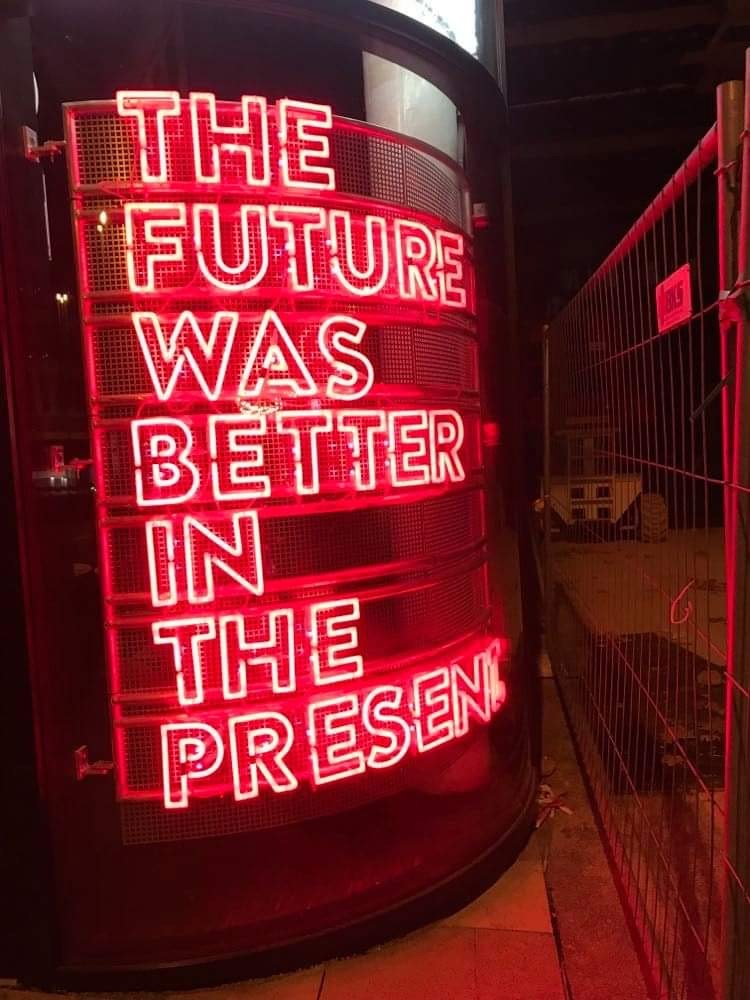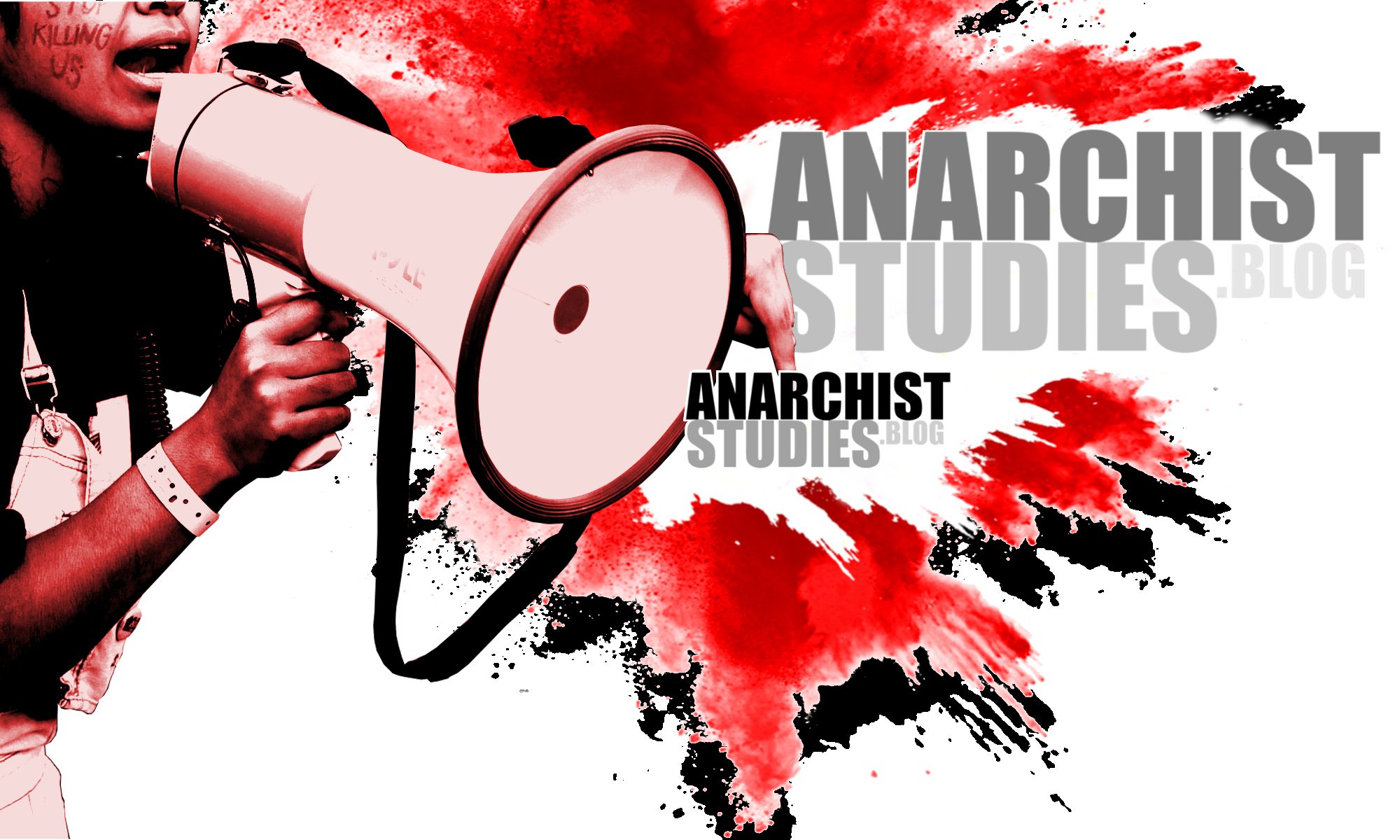by Laney Lenox
13th April 2021
As expectations of the first lockdown loomed in early March 2020, I felt like I was preparing for a storm. I was born and raised in Northwest Louisiana, a place where tornados and hurricanes are regularly forecast each year. There is an expectation that these storms will destroy some sense of the everyday and that things will be rebuilt more or less as they were before the storm. Over a year into the pandemic, the overarching narrative of this crisis resonates with this idea of rebuilding. Continuing talks of ‘returning to normal’ or ‘the new normal’ create a sense of obligation to repair political and economic structures that, as has become more apparent during the pandemic, only serve an increasingly powerful few.
Although I was not one of the original contributors to AnarchistStudies.Blog in the first wave of the pandemic crisis, I wanted to employ the same practice of reflecting on this past year. In this process of reflecting, I re-read some of my journal entries from the early days of the pandemic. In March of 2020, I was recently returned from conducting my doctoral fieldwork in Germany. Unexpectedly being asked to stay in one place seemed, at the time, like a very welcome pause. I applied the same tools of analysis and reflection used in my fieldwork to the first lockdown, including keeping a kind of field journal. As an anthropologist, this seemed a natural way to navigate and make sense of our strange new context. My journal entries from this time focus mainly on the novelty of being unhurried. I took the time to describe small moments of joy in detail, such as how it felt to sit outside with a cup of tea while watching life go by on the street, taking the time to appreciate how good the warmth of the cup felt in my hands. The sense of space and slowness that opened up in my life was a firm disconnect from my former everyday that allowed me to re-consider the impact of my daily life on the future I imagined.
Although I had considered myself an anarchist for a few years at the start of the pandemic, this had never had any meaningful implication in my day-to-day life. I spent a lot of time thinking and writing about anarchism academically without seriously considering what this meant for me in terms of the actions I took in daily life, in large and small ways – how I bought my food, the conversations I had with people, etc. The sudden slowness I experienced in the early days of the pandemic, which in many ways was the inability to act, allowed me the space to reflect on my own ideology and how it could be enacted concretely.

This slowness is an act of de-centralization that allows for a non-linear and inclusive re-imagining of progress and the future. The anthropologist Peter Pels calls for an ‘anthropology of the future’ – a process of collectively considering how we imagine our futures and arguing that this process ought to be more inclusive and pluralistic.[1] The pandemic has offered a unique opportunity for this kind of non-linear progression, as we are forced to stop producing in the same way. I took the photo, above, while in Germany conducting fieldwork. I’ve reflected on this phrase, ‘The future was better in the present’, a lot over the past year. My fieldwork focused on German memorial culture and understanding how engaging with the past within a non-linear understanding can help us build more inclusive futures by providing a framework for reflection and considering how the events and structures of the past inform our present realities and, thus, how we imagine and construct our futures. I took this photo in February of 2020, right before our sense of the future drastically changed. Over the course of this last year, in which the futures we held to were robbed from us, I have begun to think of this photo differently. I now think of the phrase, ‘The future was better in the present’ as meaning that we move into better versions of our futures not when we think of the future as a far-away plan, but when we think of it as hope itself, as the imagined societies and communities that we can begin to live out through the actions we decide to take daily.
When direct democracy or democratic action is discussed, it tends to be done in overarching terms detached from our lives as individuals. Democracy becomes a structure that we live within or that happens to us but that has very little meaning in our daily lives. An anarchistic praxis focusing on small, everyday actions and localized acts of community building can create important change and instill hope that collective, individual acts can meaningfully alter the status quo. By imagining the future we wish to see and beginning to live our daily lives as if they already exist, we can begin to meaningfully challenge existing structures.
It’s worth noting that the reflective practice I engaged in last year was only possible because of the pause in production expectations in the early days of the pandemic, at least for those of us that were not essential workers. Unfortunately, this leniency around expectations of production has not been maintained a year into the pandemic. This makes protecting a sense of slowness and detachment from production expectations feel like an act of resistance. This initial pause made me realize that I was so focused on the production of anarchist ideas within my own academic research that I hadn’t given myself the space to consider how this could be applied in my own life. Considering Paolo Virno’s idea of ‘engaged withdrawal’, this allowed me to think of action not only as that which I do. Slowing down in and of itself, taking time to participate in a community garden, spend more time walking to local and no waste shops to buy my food rather than ordering from big supermarkets online, could be also be an important political act.
In discussing participation in political movements, David Graeber argues that once an individual meaningfully starts to consider that actions can be taken to actually change the direction of our futures, this sort of hope, or possibility, never completely goes away. He calls this a ‘transformative outbreak of imagination’.[2] Without in any way belittling or negating the pain and suffering the pandemic has caused, I suggest that this can be a moment of this ‘transformative outbreak of imagination’. As we begin to consider what the world will look like as we recover from this crisis, there is no normal to which we are obliged to return. We can truly imagine new ways of being that can begin to take shape in our daily lives and embodied experiences.
References
[1] Pels, Peter (2015) ‘Modern Times: Seven steps towards an anthropology of the future’, Current anthropology, 56(6), pp. 779-796.
[2] Graeber, David (2013) The democracy project: A history, a crisis, a movement, New York: Penguin Random House.
